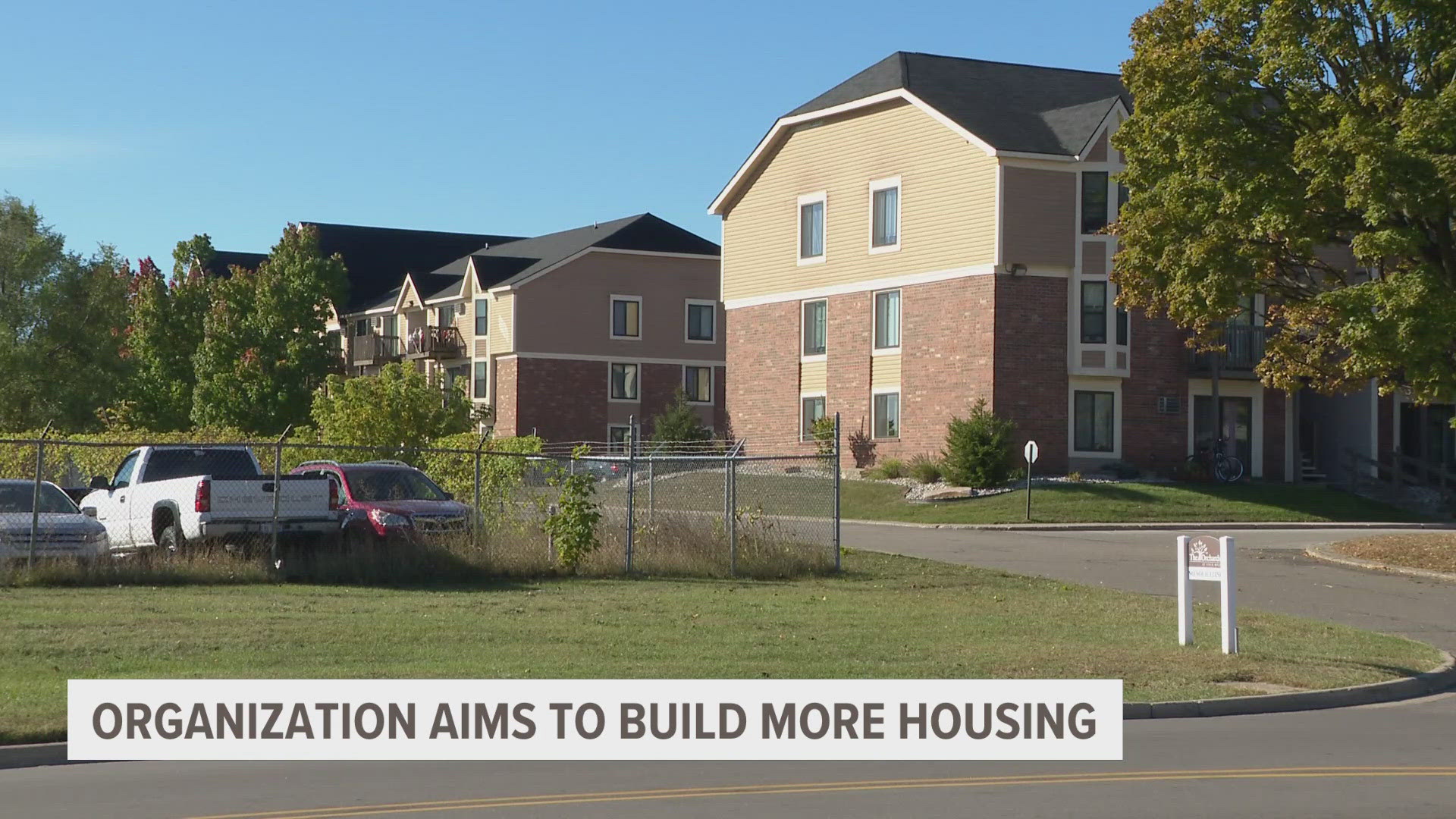GRAND RAPIDS, Mich. — Renters and experts are saying finding a place to rent in Grand Rapids has become tough—but one West Michigan group has ideas on where to build more housing in the area.
"We're largely with our current regulatory structure, only making space for for households that make more than $100,000 a year, and that is just not most of our community," said Brooke Oosterman, executive director of Housing Next.
Just a few days after RentCafe reported Grand Rapids was ranked the 11th toughest city to find an apartment in the country, Housing Next is hoping to offer ideas and solutions.
"We have a critical housing shortage. We are 35,000 units short in Kent County, 50,000 in the region that we represent between Ottawa and Kent County. So the community really looked at us and said, we need to get to solutions at scale. This number feels defeating," said Oosterman.
RentCafe reported that 95% of apartments are occupied and apartments that are vacant stay available for around 35 days, with at least 10 people competing for that one spot. Housing Next partners with local governments, nonprofits and developers in West Michigan to remove barriers for housing at all price levels. Oosterman said the group did an analysis one year ago to identify areas of opportunity for corridor redevelopment in Kent County.
"So our analysis included sites that were vacant as well as sites that were severely underutilized. We identified several corridors where, of course, there is vacant and underutilized property that was, you know, first and foremost, but of course, where infrastructure already exists, so water, sewer, access, to transit, those types of things," said Oosterman.
Results from the analysis strategy highlights that there is an existing capacity to meet housing demand for more than 70,000 new homes, condos and apartments by the year 2050. Oosterman said with the community's help, she hopes there will be spaces in the future with housing for everyone.
"It's working with our local communities, helping them to understand the vision, helping them to rewrite their ordinances in favor of more residential development…And so there are some big challenges ahead of us, right? It's going to take a very, very strategic, collaborative, intentional approach to get there, but the benefit is, we're all going to be better for it," said Oosterman.

